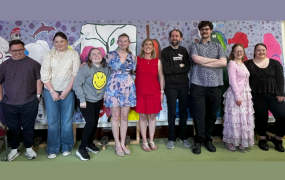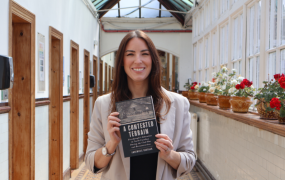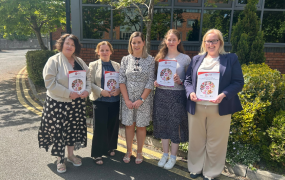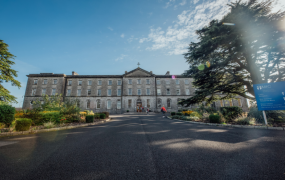Search
Use search box below to look for information on the Mary Immaculate College website. There are some helpful links to common search queries above it. Keep an eye out for the 'Ask a Question' function on certain pages and sections where you can pose specific queries to MIC staff (and see previous questions and answers underneath the question box).
Founded in 1898, MIC is the oldest third level institution in Limerick. Visit this page to learn about the College's mission, vision, values, & history.
Run by the Department of English language and Literature in MIC since 2002, this highly-successful and popular one-year taught Master of Arts programme in Modern English Literature has graduated over 160 students and 97% of these students have graduated with an honours MA degree.
There are more reasons than ever before to choose Primary Teaching as your number one CAO choice according to Professor Eugene Wall, President of MIC, who was speaking on the Department of Education’s decision to allocate more places across Ireland’s primary teaching programmes. As a result, MIC will be offering an additional 30 places across their much-in-demand primary teaching programmes, thereby making a career in primary teaching more accessible and attainable than ever before.
Learn about the Department of Music at MIC, which offers music as an arts subject for the BA in Liberal Arts and music electives for the B Ed in Primary Teaching. It also supervises graduate students at MA and PhD level by research in Musicology and Music Education, and also offers a taught MA in Music Education in association with the Department of Arts Education and Physical Education.
Visit this page to learn how Music can be taken as part of the MIC Arts Degree as a joint honours combination. The music programme at MIC explores the history and language of music and is designed to enable students to develop technical, analytical, critical, performing, aural and creative skills.
The Mary Immaculate College (MIC) Thurles Summer School returns this June with a two-day on-campus event featuring leading national and international educationalists. Held on Tuesday 13 and Wednesday 14 June, the MIC Thurles Summer School will explore the 1998 Education Act, the progress made under it over a quarter of a century, and the journey yet to be travelled in supporting the principles of the Act.
The Gender Identity & Expression Equality Champion Network represents a voluntary community of individuals working in relevant roles within their HEI to establish gender equality. MIC is a part of this voluntary network.
Mary Immaculate College (MIC) has welcomed the significant funding made available to fourteen first year trainees on MIC’s highly sought-after three-year full-time Professional Doctorate in Educational and Child Psychology (DECPsy). Arising from the workforce planning needs of both the National Educational Psychological Service (NEPS) and the Health Service Executive (HSE), the new funding arrangements were highlighted at the inaugural Professional Doctorate in Educational and Child Psychology Stakeholder Advisory Committee (SAC) meeting held at MIC on Monday (23 October). The Committee is an advisory body to the DECPsy programme with membership including senior representatives from the programmes funding partners, NEPS and the HSE.
The Network for Researchers in Catholic Education Annual Conference, hosted by Mary Immaculate College, in partnership with the Irish Institute for Catholic Studies and the Catholic Association of Teachers, Schools, and Colleges, will take place on Thursday 19 & Friday 20 October 2023. Our conference, the theme of which is 'Fluidly Failthful? Catholic Education and the Institutional Church', will ponder the nature of the relationship between Catholic Education and the wider Catholic Church.
A new book from MIC academic, Dr Brighid Golden, aims to act as a core text to empower educators to teach global citizenship education. Global Citizenship Education: Curious Teachers, Critical Classrooms brings together the knowledge, expertise, and wisdom of well-respected experts working in the sector and presents the most important considerations for educators to develop their understanding and awareness of Global Citizenship Education (GCE).










